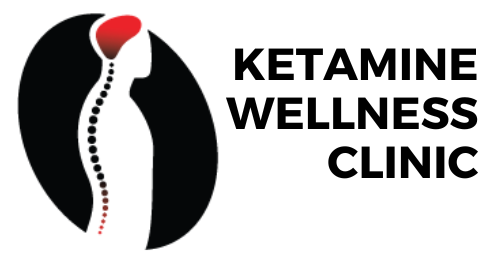Ketamine is a synthetic medication that has been used in humans for over 50 years. It is a non-addictive treatment option for major depression, mood irregularities, and various chronic pain conditions. Recent evidence has strongly supported its’ effectiveness. Ketamine can be administered multiple ways, however, the most efficacious route is intravenous.
Under the care of double board certified Anesthesiologist, intravenous Ketamine is administered and extremely safe, even in large doses.
You do not need a Psychiatrist’s referral for treatment. However, we will first speak with you to discuss your prior treatment history and assess your candidacy for IV Ketamine treatments.
Ketamine works two ways: psychotropic and biochemical. With the psychotropic pathway, patients have mild, euphoric dissociations and enter a state free of worries- this carries over to their day to day lives. For the biochemical pathway, Ketamine increases connections between neurons, or brain cells, and alters the concentration of Glutamate, a neurotransmitter in the brain.
The duration of efficacy for Ketamine treatments depends both on the number of infusions received as well as the person receiving them. Every person has specific brain chemistry and also comes from a different background in terms of life events, upbringing, etc. These factors and many more will determine how long Ketamine will benefit you.
With the IV route, you get a more controlled and pure experience, since with an intramuscular injection one must wait for the Ketamine to enter the bloodstream from the muscle. With the IV route, the Ketamine is directly placed into the bloodstream which reaches your brain quickly. The intramuscular route, because you have to deposit all of the dose in one (or two) injections, you get more of an intense high and fast come down. The IV route allows for a gradual onset and and longer experience. The ideal route is the IV route.
Patients who are taking benzodiazepines (alprazolam, lorazepam, clonazepam, etc.) or lamotrigine (Lamictal) should work with their prescribers to try to lower their intake or wean off these medications prior to beginning ketamine therapy in order to maximize the treatment’s efficacy. If this is not possible, the dose prior to each infusion should be held. This can be further discussed with the doctor and a plan will be made between you and him. Taking the above medications does not mean Ketamine will not work for you. Marijuana can also impede in Ketamine’s efficacy, and should be held at least 3 days prior to a Ketamine infusion, if not longer.
All our infusions take approximately 60 minutes to administer. We don’t interrupt you for 75 minutes however, since Ketamine levels are still high at the 60 minute mark.
Typically we offer four to six infusions within a two to three week period, with subsequent infusions as needed to relieve symptoms. Most patients require “maintenance” infusions. The response of individual patients varies and is impossible to predict with current available resources. Each Ketamine treatment plan is designed according to the particular needs of any given patient, and our doctor is dedicated to getting to know each patient’s needs and responses and tailoring therapy to the individual.
Responses to ketamine vary from individual to individual. You will be awake and can continue to be able to interact with those around you if needed. Most patients just close their eyes and relax during the infusion. Some people may experience transient dizziness, nausea, mild visual hallucinations, a sense of disconnection from the body, and mild distortions of space and time perception. The infusion is generally a tolerable and euphoric experience for most people, though is commonly described as “weird.” It can also leave some people feeling emotionally vulnerable, while others may feel a sense of well-being and openness. You will be back to your baseline about fifteen to thirty minutes after the infusion ends and will be monitored for as long as needed before you are discharged. Less commonly, some people become fatigued after infusions and/or may develop a headache, a feeling of “heaviness,” or some nausea. While you may not be groggy after the infusion, we strongly advise that you avoid driving, operating machinery, or participating in challenging mental work or decision-making for at least twelve hours after the infusion, and we require that someone drive you home.
Please do not consume solid food or liquids in the 3 hours preceding your appointment.
Because it is abused as a “party drug,” there are legitimate concerns about Ketamine addiction. A recent study out of the University of Geneva in Switzerland found the likelihood of Ketamine addiction to be “unlikely,” due to the way it acts on the dopamine receptors (different from other addictive substances). It currently does not meet criteria for being physically addictive, though tolerance to its effects may occur with prolonged exposure. It may pose a risk of being psychologically addictive for some. We have not found Ketamine to be addictive when given in a controlled setting, in limited instances, under doctor supervision.
Ketamine is not beneficial and may in fact be harmful or exacerbate symptoms in patients with schizophrenia, psychosis or individuals having a manic episode that have been diagnosed with Bipolar. If you have epilepsy, Ketamine is still a treatment option for you- however, please let us know so we can take the necessary dosage precautions. If you take Aminophylline for Asthma or COPD please let us know as the combination of Aminophylline with Ketamine may increase the risk of seizures. If you have uncontrolled high blood pressure please consult your primary care physician to treat your blood pressure before pursuing Ketamine treatments. Patients with cardiac arrhythmias or a history of a heart attack or stroke need to have a clearance note from a Cardiologist prior to receiving Ketamine.
